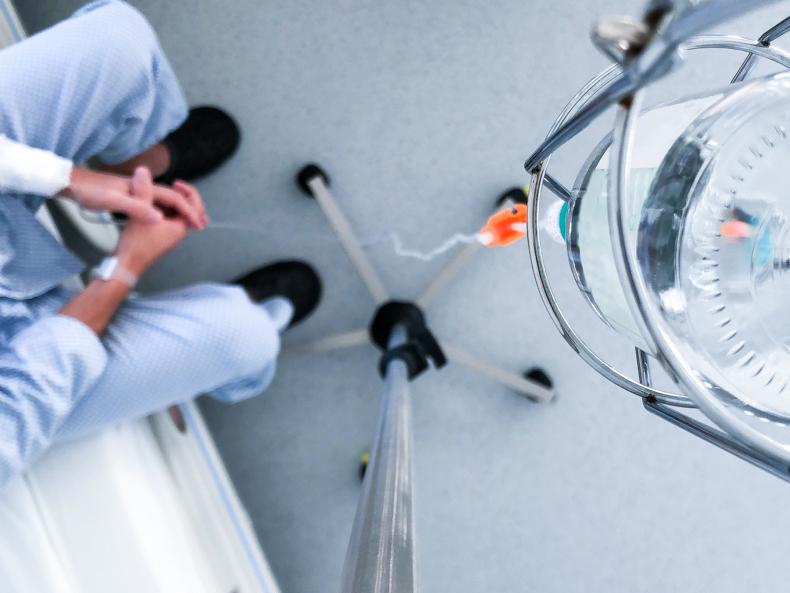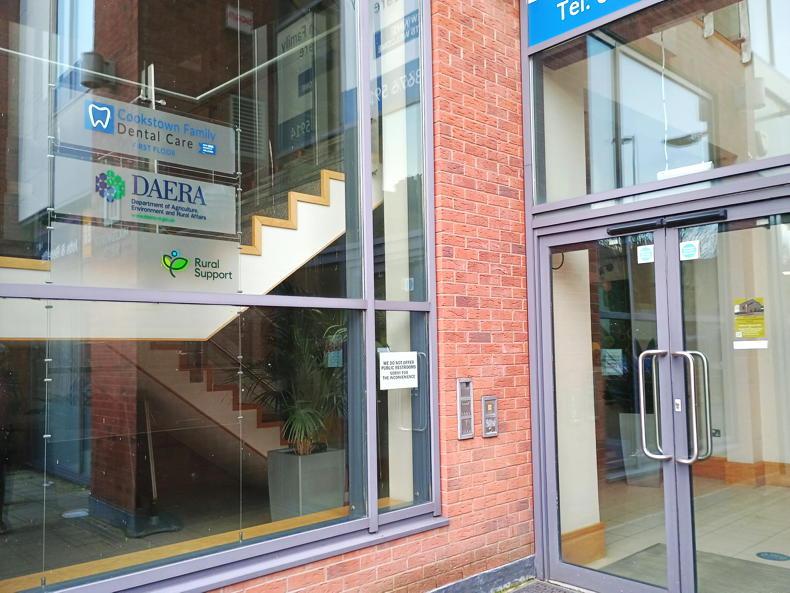Do you have diabetes and are wondering what you can do to prepare yourself in case you get COVID-19? People with diabetes should prepare themselves so that they are in best possible health and have the necessary knowledge and supplies for when they need to self-treat any illness, says Diabetes Ireland. This is what the support charity suggests:
You should have a sick day regime to follow in case of illness – if you haven’t, get one from your diabetes team today.For people with type 1 diabetes – ensure you have ketone strips.For people with type 2 diabetes – know if you need to alter any medications.Confirm with your diabetes team, what is acceptable related to glucose levels if home testing and when to contact them for assistance.If using a pump, ensure you have insulins (basal and bolus) to use in case of pump failure.Make sure you have two weeks supply of medication where possible – ring the pharmacy* and arrange date and time for collection the week before your script needs filling.Ensure you have an adequate supply of non-diet drinks ie soft drinks and simple foods that contain some sugar in case you cannot take solid foods.Make sure you have a thermometer – the first question you will be asked if you need to seek medical attention is have you a fever (temperature above 38°C or 100.4°F ).Do everything possible to maintain good glucose control.For people with type 2 diabetes or prediabetes, see Diabetes Smart.For people with type 1 diabetes, reinstate frequent glucose monitoring and insulin adjustment.* Pharmacists are to be allowed by law to dispense medicines outside the dates spelled out in prescriptions according to their own professional judgement.
An estimated 90,000 people in Ireland live with heart failure, a highly debilitating, life-threatening condition which means that the heart is no longer working efficiently and doesn’t pump as well as it should.
Heart failure patients are classified as an “at-risk group” by the HSE and may be more at risk of serious illness if they contract the coronavirus.
Heart failure is a condition which requires on-going management by patients and their hospital healthcare team, and patients regularly visit hospital to see their heart failure nurse.
Due to the coronavirus outbreak, heart failure teams have moved to phone consultations where possible.
Speaking about the new online support network, Norma Caples, lead nurse for the National Clinical Programme for Heart Failure said: “The heart failure service is critical to keeping a particularly vulnerable patient cohort well in the community. Heart failure patients have reported to me that they are afraid to go to their GP or hospital in case of contracting COVID-19. We need to try and manage their care as near as possible to their home. We must reassure and support them at this time.”
The goal is to avoid heart failure patients’ condition deteriorating.
The new online service is being supported by pharmaceutical companies including Novartis, Vifor Pharma and Pfizer.
Anyone living with heart disease and stroke who has concerns or questions about the coronavirus can contact the nurse support line on 01-668 5001 or support@irishheart.ie five days a week (Monday to Friday, 9am-5pm).
The new online forum will allow clinical nurse specialists to share information and advice with patients during the coronavirus outbreak. See facebook.com/groups/heartsupportnetwork/
Need advice related to arthritis? Arthritis Ireland has a dedicated COVID-19 page www.arthritisireland.ie/covid-19 to check in with and a Messenger chat facility linked to it. The Arthritis Ireland Helpline is 1890 252 846. They focus on reassuring those with arthritis that there is currently no scientific evidence to support claims that non-steroidal anti-inflammatory drugs (NSAIDs) could worsen COVID-19. People should follow advice from a doctor or pharmacist if using any NSAID, they say.
Immunosuppressive treatments
The data from studies of the outbreak in Wuhan have so far not identified immunosuppressive treatments prescribed in rheumatology patients as a risk factor for higher mortality, the organisation says, but it is a reasonable cause for concern and the data on the disease is being monitored.
“The COVID-19 epidemic may last several months, so if you stop your medicine, you will be likely to have a flare during this period and restart or have to take more intensive treatment with steroids. We do not recommend stopping your rheumatology medication and do not stop steroids suddenly or you may become very unwell,” a spokesperson states.
“At present there is no known benefit to stopping your immunosuppressive medication. If you have symptoms of a viral infection – cough, shortness of breath, breathing difficulties, fever – continue steroids, but hold your other immunosuppressives and seek advice with your GP or rheumatologist or consult the HSE website – do not stop steroids suddenly without medical advice.”
With face-to-face counselling related to having cancer not being available, the good news is that the Irish Cancer Society is funding remote counselling sessions.
Donal Buggy, head of services with the Irish Cancer Society said: “Counselling is an important tool for all cancer patients and their loved ones as they live with and beyond cancer.
“The service is available to all people diagnosed with cancer, as well as their carers and loved ones. Anyone who feels they need counselling support can contact our Cancer Nurseline and if the service is suitable for their needs they will then be linked in with an accredited, experienced counsellor. We understand that this is an especially worrying time for those affected by cancer and their families. Our Nurseline is also available to provide support, information and advice to people at this time. The Nurseline is operating extended hours and is available from 9am-8pm on Monday-Thursday, and 9am-5pm on Friday-Sunday. Freephone 1800 200 700 lines or email the Cancer Nurseline: cancernurseline@irishcancer.ie
More information on coronavirus is available at www.cancer.ie/Coronavirus.
As the situation with COVID-19 in Ireland continues to develop, Epilepsy Ireland is endeavouring to provide the most up-to-date advice for people with epilepsy. They advise that:
The best and only source of information regarding coronavirus in Ireland is available from the HSE and the Department of Health.There is no known evidence that having epilepsy makes you more susceptible to catching the virus. However, please note that for many people with epilepsy, having a fever can lead to increased seizure activity. This is because the body is under stress in trying to fight off the illness and therefore lowers your seizure threshold. Apply the official preventative advice issued by the HSE in your day to prevent you from catching the virus.If you have to self-isolate, it would be advisable to always inform family, or carers so that you can be checked on. You should also ensure you have all your medication prescriptions in supply and up to date. Make sure to have your phone to hand, along with a charger and if possible arrange for calls to a family member/carer/friend at pre-arranged intervals eg on the hour. Gardaí community response vehicles may be deployed to collect medical prescriptions or take people to hospital appointments. You will need to contact your local garda station in order to enquire about this. Epilepsy Ireland’s dedicated community resource officers are available by phone and email. Follow this web address to find out how to contact your community resource officer: www.epilepsy.ie/content/our-local-serviceIf you believe you are developing symptoms, your first port of call is to contact your GP. Drink plenty of fluids and take 1g of paracetamol (two 500mg tablets) every six hours to reduce fever to avoid the chance of a breakthrough seizure. Stress and anxiety can increase susceptibility to seizures. See epilepsy.ie’s section on lifestyle and triggers for further information on how best to manage your epilepsy.
Around 380,000 people in Ireland have asthma and 500,000 have chronic obstructive pulmonary disease (COPD) but the Asthma Society of Ireland is assuring them that there is no national shortage of asthma and COPD medication. Some panic buying at the beginning of the crisis did lead to a temporary shortage but that was resolved.
The society’s website asthma.ie hosts specific information for people with asthma and/or COPD on the coronavirus. It contains a comprehensive FAQ section which answers questions on the coronavirus, along with some very specific ones, as well as essential information on how to manage your asthma and/or COPD at this time.
The Asthma Society is also advising patients to:
Only get advice from reliable sources.Don’t stop taking your preventative medication as this could result in an unnecessary asthma attack. Asthma and COPD adviceline – 1800 44 54 64.
While the Alzheimer Society of Ireland’s (ASI) day care centres and social supports are closed because of COVID-19 it continues to support people with dementia and their families.
Its Home Care, Dementia Advisers, National Helpline and Online Family Carer Training are all still running. It is also supporting clients and their families remotely by phoning regularly and suggesting activity packages for people to use in their own homes.
For tip sheets to help support people with dementia and their families in a challenging and rapidly changing situation see www.alzheimer.ie
The ASI National Helpline is open six days a week Monday to Friday 10am-5pm and Saturday 10am-4pm on 1800 341 341. Email at helpline@alzheimer.ie or via Live Chat at www.alzheimer.ie
Given that their annual Tea Day in May has been cancelled they are appealing for donations to support their work.
Migraine Association of Ireland
If you suffer from migraine and you need information related to COVID-19 see their frequently asked questions web page.
Email info@migraine.ie and follow the Migraine Association of Ireland on Facebook @migraineireland
Those with the lung condition cystic fibrosis (CF) are in the high-risk groups that are cocooning during the COVID-19 outbreak.
Chief executive of Cystic Fibrosis Ireland (CFI) Phillip Watt, is advising all CF patients to follow the HSE guidelines and not leave their homes.
CF patients who experience a sudden worsening of their condition – which might require an intensive course of antibiotics and support from physiotherapists and dieticians – should access hospital treatment following the advice of their consultant or nurse specialist.
CFI is aware that some in-patient rooms that were previously used for CF care are now being used in the treatment of COVID-19 patients.
“While this has also caused some anxiety in the CF community, we have been reassured that all such changes are temporary and will be agreed by CF clinicians before they proceed,” says Watt.
Prof Laurence Egan, consultant gastroenterologist said that while patients with irritable bowel diseases (IBD) and doctors should be mindful of COVID-19 symptoms that might mimic an IBD flare they are not at increased risk of COVID-19. “While patients with IBD have similar symptoms to non-IBD patients – fever, dry cough, muscle pain and the other usual features of the disease, Chinese data shows us that about 4% of COVID-19 patients report diarrhoea, abdominal cramping or vomiting. Therefore, one should keep an open mind about symptoms that might mimic an IBD flare, and doctors should arrange a test for any patient with a fever and other symptoms of COVID-19 according to HSE testing guidance,” he said.
Do you have diabetes and are wondering what you can do to prepare yourself in case you get COVID-19? People with diabetes should prepare themselves so that they are in best possible health and have the necessary knowledge and supplies for when they need to self-treat any illness, says Diabetes Ireland. This is what the support charity suggests:
You should have a sick day regime to follow in case of illness – if you haven’t, get one from your diabetes team today.For people with type 1 diabetes – ensure you have ketone strips.For people with type 2 diabetes – know if you need to alter any medications.Confirm with your diabetes team, what is acceptable related to glucose levels if home testing and when to contact them for assistance.If using a pump, ensure you have insulins (basal and bolus) to use in case of pump failure.Make sure you have two weeks supply of medication where possible – ring the pharmacy* and arrange date and time for collection the week before your script needs filling.Ensure you have an adequate supply of non-diet drinks ie soft drinks and simple foods that contain some sugar in case you cannot take solid foods.Make sure you have a thermometer – the first question you will be asked if you need to seek medical attention is have you a fever (temperature above 38°C or 100.4°F ).Do everything possible to maintain good glucose control.For people with type 2 diabetes or prediabetes, see Diabetes Smart.For people with type 1 diabetes, reinstate frequent glucose monitoring and insulin adjustment.* Pharmacists are to be allowed by law to dispense medicines outside the dates spelled out in prescriptions according to their own professional judgement.
An estimated 90,000 people in Ireland live with heart failure, a highly debilitating, life-threatening condition which means that the heart is no longer working efficiently and doesn’t pump as well as it should.
Heart failure patients are classified as an “at-risk group” by the HSE and may be more at risk of serious illness if they contract the coronavirus.
Heart failure is a condition which requires on-going management by patients and their hospital healthcare team, and patients regularly visit hospital to see their heart failure nurse.
Due to the coronavirus outbreak, heart failure teams have moved to phone consultations where possible.
Speaking about the new online support network, Norma Caples, lead nurse for the National Clinical Programme for Heart Failure said: “The heart failure service is critical to keeping a particularly vulnerable patient cohort well in the community. Heart failure patients have reported to me that they are afraid to go to their GP or hospital in case of contracting COVID-19. We need to try and manage their care as near as possible to their home. We must reassure and support them at this time.”
The goal is to avoid heart failure patients’ condition deteriorating.
The new online service is being supported by pharmaceutical companies including Novartis, Vifor Pharma and Pfizer.
Anyone living with heart disease and stroke who has concerns or questions about the coronavirus can contact the nurse support line on 01-668 5001 or support@irishheart.ie five days a week (Monday to Friday, 9am-5pm).
The new online forum will allow clinical nurse specialists to share information and advice with patients during the coronavirus outbreak. See facebook.com/groups/heartsupportnetwork/
Need advice related to arthritis? Arthritis Ireland has a dedicated COVID-19 page www.arthritisireland.ie/covid-19 to check in with and a Messenger chat facility linked to it. The Arthritis Ireland Helpline is 1890 252 846. They focus on reassuring those with arthritis that there is currently no scientific evidence to support claims that non-steroidal anti-inflammatory drugs (NSAIDs) could worsen COVID-19. People should follow advice from a doctor or pharmacist if using any NSAID, they say.
Immunosuppressive treatments
The data from studies of the outbreak in Wuhan have so far not identified immunosuppressive treatments prescribed in rheumatology patients as a risk factor for higher mortality, the organisation says, but it is a reasonable cause for concern and the data on the disease is being monitored.
“The COVID-19 epidemic may last several months, so if you stop your medicine, you will be likely to have a flare during this period and restart or have to take more intensive treatment with steroids. We do not recommend stopping your rheumatology medication and do not stop steroids suddenly or you may become very unwell,” a spokesperson states.
“At present there is no known benefit to stopping your immunosuppressive medication. If you have symptoms of a viral infection – cough, shortness of breath, breathing difficulties, fever – continue steroids, but hold your other immunosuppressives and seek advice with your GP or rheumatologist or consult the HSE website – do not stop steroids suddenly without medical advice.”
With face-to-face counselling related to having cancer not being available, the good news is that the Irish Cancer Society is funding remote counselling sessions.
Donal Buggy, head of services with the Irish Cancer Society said: “Counselling is an important tool for all cancer patients and their loved ones as they live with and beyond cancer.
“The service is available to all people diagnosed with cancer, as well as their carers and loved ones. Anyone who feels they need counselling support can contact our Cancer Nurseline and if the service is suitable for their needs they will then be linked in with an accredited, experienced counsellor. We understand that this is an especially worrying time for those affected by cancer and their families. Our Nurseline is also available to provide support, information and advice to people at this time. The Nurseline is operating extended hours and is available from 9am-8pm on Monday-Thursday, and 9am-5pm on Friday-Sunday. Freephone 1800 200 700 lines or email the Cancer Nurseline: cancernurseline@irishcancer.ie
More information on coronavirus is available at www.cancer.ie/Coronavirus.
As the situation with COVID-19 in Ireland continues to develop, Epilepsy Ireland is endeavouring to provide the most up-to-date advice for people with epilepsy. They advise that:
The best and only source of information regarding coronavirus in Ireland is available from the HSE and the Department of Health.There is no known evidence that having epilepsy makes you more susceptible to catching the virus. However, please note that for many people with epilepsy, having a fever can lead to increased seizure activity. This is because the body is under stress in trying to fight off the illness and therefore lowers your seizure threshold. Apply the official preventative advice issued by the HSE in your day to prevent you from catching the virus.If you have to self-isolate, it would be advisable to always inform family, or carers so that you can be checked on. You should also ensure you have all your medication prescriptions in supply and up to date. Make sure to have your phone to hand, along with a charger and if possible arrange for calls to a family member/carer/friend at pre-arranged intervals eg on the hour. Gardaí community response vehicles may be deployed to collect medical prescriptions or take people to hospital appointments. You will need to contact your local garda station in order to enquire about this. Epilepsy Ireland’s dedicated community resource officers are available by phone and email. Follow this web address to find out how to contact your community resource officer: www.epilepsy.ie/content/our-local-serviceIf you believe you are developing symptoms, your first port of call is to contact your GP. Drink plenty of fluids and take 1g of paracetamol (two 500mg tablets) every six hours to reduce fever to avoid the chance of a breakthrough seizure. Stress and anxiety can increase susceptibility to seizures. See epilepsy.ie’s section on lifestyle and triggers for further information on how best to manage your epilepsy.
Around 380,000 people in Ireland have asthma and 500,000 have chronic obstructive pulmonary disease (COPD) but the Asthma Society of Ireland is assuring them that there is no national shortage of asthma and COPD medication. Some panic buying at the beginning of the crisis did lead to a temporary shortage but that was resolved.
The society’s website asthma.ie hosts specific information for people with asthma and/or COPD on the coronavirus. It contains a comprehensive FAQ section which answers questions on the coronavirus, along with some very specific ones, as well as essential information on how to manage your asthma and/or COPD at this time.
The Asthma Society is also advising patients to:
Only get advice from reliable sources.Don’t stop taking your preventative medication as this could result in an unnecessary asthma attack. Asthma and COPD adviceline – 1800 44 54 64.
While the Alzheimer Society of Ireland’s (ASI) day care centres and social supports are closed because of COVID-19 it continues to support people with dementia and their families.
Its Home Care, Dementia Advisers, National Helpline and Online Family Carer Training are all still running. It is also supporting clients and their families remotely by phoning regularly and suggesting activity packages for people to use in their own homes.
For tip sheets to help support people with dementia and their families in a challenging and rapidly changing situation see www.alzheimer.ie
The ASI National Helpline is open six days a week Monday to Friday 10am-5pm and Saturday 10am-4pm on 1800 341 341. Email at helpline@alzheimer.ie or via Live Chat at www.alzheimer.ie
Given that their annual Tea Day in May has been cancelled they are appealing for donations to support their work.
Migraine Association of Ireland
If you suffer from migraine and you need information related to COVID-19 see their frequently asked questions web page.
Email info@migraine.ie and follow the Migraine Association of Ireland on Facebook @migraineireland
Those with the lung condition cystic fibrosis (CF) are in the high-risk groups that are cocooning during the COVID-19 outbreak.
Chief executive of Cystic Fibrosis Ireland (CFI) Phillip Watt, is advising all CF patients to follow the HSE guidelines and not leave their homes.
CF patients who experience a sudden worsening of their condition – which might require an intensive course of antibiotics and support from physiotherapists and dieticians – should access hospital treatment following the advice of their consultant or nurse specialist.
CFI is aware that some in-patient rooms that were previously used for CF care are now being used in the treatment of COVID-19 patients.
“While this has also caused some anxiety in the CF community, we have been reassured that all such changes are temporary and will be agreed by CF clinicians before they proceed,” says Watt.
Prof Laurence Egan, consultant gastroenterologist said that while patients with irritable bowel diseases (IBD) and doctors should be mindful of COVID-19 symptoms that might mimic an IBD flare they are not at increased risk of COVID-19. “While patients with IBD have similar symptoms to non-IBD patients – fever, dry cough, muscle pain and the other usual features of the disease, Chinese data shows us that about 4% of COVID-19 patients report diarrhoea, abdominal cramping or vomiting. Therefore, one should keep an open mind about symptoms that might mimic an IBD flare, and doctors should arrange a test for any patient with a fever and other symptoms of COVID-19 according to HSE testing guidance,” he said.









SHARING OPTIONS